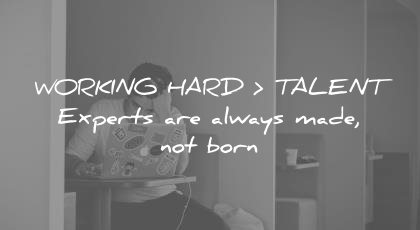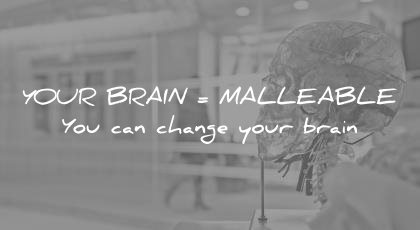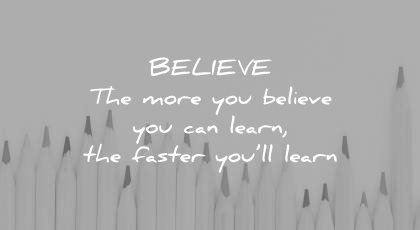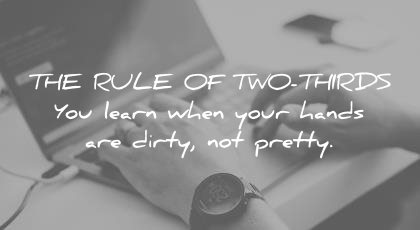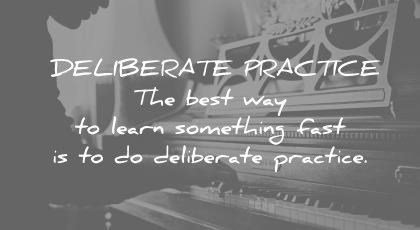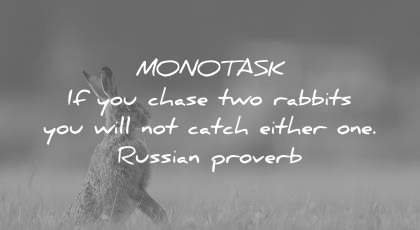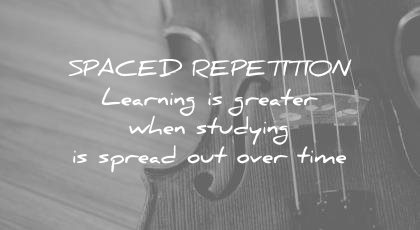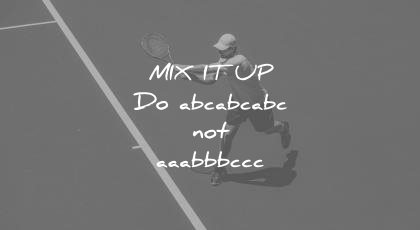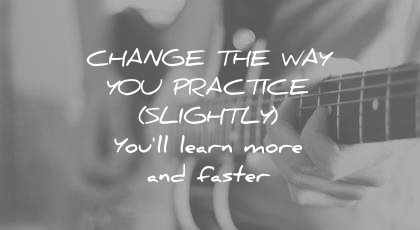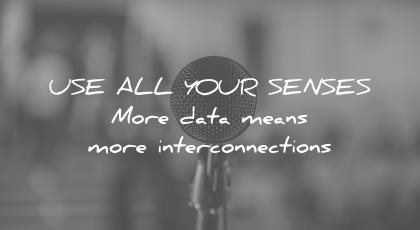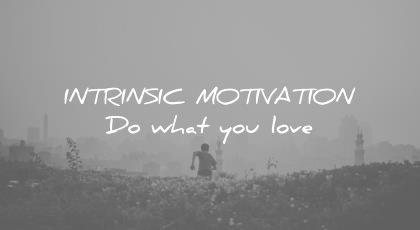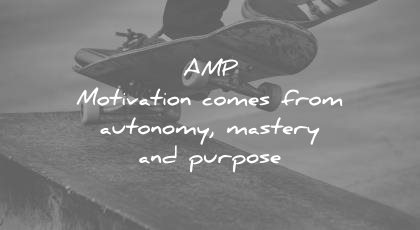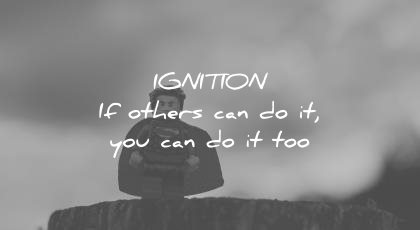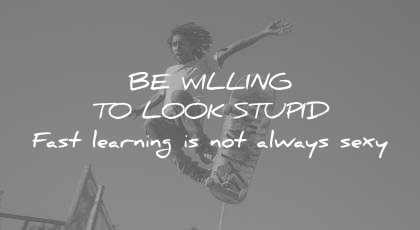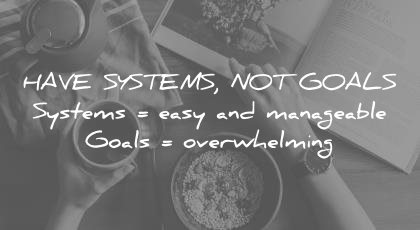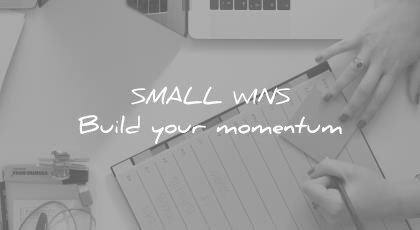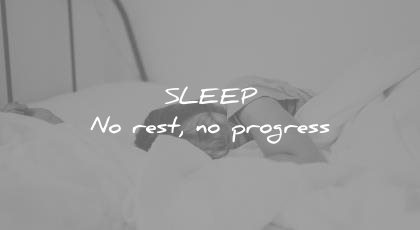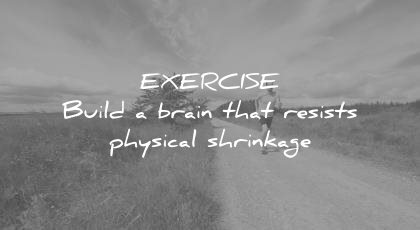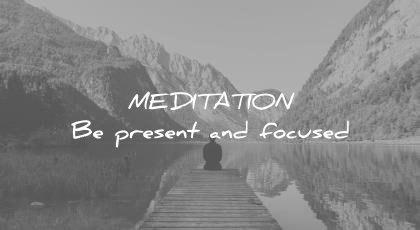The world is changing fast.
It means learning fast is vital.
In fact, people who are able to learn quickly are the ones that will be successful in the long term.
What does it mean to you?
If you don’t want to become obsolete in a few months you will need to learn fast too.
That’s why I’ve curated the 30 best learning tips and hacks for you.
Hope you’ll apply them in your life.
And please keep in mind: this is a very long article.
I’ve spent at least 30+ hours writing it.
But you have EVERYTHING you need to learn faster, in ONE place.
Bookmark this page to come back later.
Let’s begin!
Table Of Contents
Part 1
What To Know Before Learning
Hack #1. Working Hard > Talent
Hack #2. Your Brain = Malleable
Hack #3. Believe
Hack #4. The Rule Of Two-Thirds
Hack #5. The 80/20
Part 2
How To Learn (Fast)
Hack #6. Deliberate Practice
Hack #7. Monotask
Hack #8. Spaced Repetition
Hack #9. Mix It Up
Hack #10. Change The Way You Practice
Hack #11. Use All Your Senses
Hack #12. Change Your Environment
Part 3
What To Do After Learning
Hack #13. Reward Yourself
Part 4
How To Stay Motivated For Learning
Hack #14. Avoid Extrinsic Rewards
Hack #15. Intrinsic Motivation
Hack #16. AMP
Hack #17. Ignition
Hack #18. Be Willing To Look Stupid
Hack #19. Have Systems, Not Goals
Hack #20. Small Wins
Hack #21. Join A Group
Part 5
How To Take Your Learning To The Next Level
Hack #22. Sleep
Hack #23. Exercise
Hack #24. Diet
Hack #25. Sugar
Hack #26. Water
Hack #27. Caffeine
Hack #28. Meditation
Hack #29. Calm Mind
Hack #30. Way Of Life
Part 6
Books And Resources On Learning
Hack #1. Working hard > Talent
The world belongs to the energetic. Ralph Waldo Emerson
Working hard is more important than talent.
Why?
Because talent is overrated.
NYT bestselling author Angela Duckworth also wrote a book about that.
After interviewing dozens of high achievers, her conclusion is that effort counts twice as much as talent.
In fact, research suggests that talent is determined far less by our genes and far more by our actions.
We presume that the surest sign of talent is early, instant, effortless success, i.e., being a prodigy. In fact, a well-established body of research shows that that assumption is false.
Moreover, K. Anders Eriksson, the leading psychologist on human performance, says that
consistently and overwhelmingly, the evidence showed that experts are always made, not born.
By the way,
did you know that many famous people were considered slow early on?
This list includes
- Albert Einstein (started talking at 4)
- Walt Disney (once fired because he lacked imagination)
- Charles Darwin (considered slow by his teachers)
- Louis Pasteur (had dyslexia and dysgraphia)
- Leo Tolstoy (his teachers said that he was both unable and unwilling to learn)
- Winston Churchill (some said he had dyslexia, others that he had a lisp)
- Pablo Picasso (had dyslexia)
- Thomas Edison (had dyslexia but was America’s greatest inventor)
So don’t worry if you don’t have “talent”.
Being the hardest working person is the key to getting ahead faster than others.
Hack #2. Your brain = Malleable
If you can change your mind, you can change your life. William James
Your brain is malleable which means you can change it.
The more important the learning is for you, the more you can make a permanent change in your brain.
It’s called neuroplasticity.
In the book, Soft-Wired: How the New Science of Brain Plasticity Can Change Your Life, Dr. Michael M. Merzenich, a famous neuroscientist from the University of California, tells us that
if you’re intensely focused on the task and really trying to master something for an important reason, the change experienced will be greater.
Or, as he puts it,
you learn ten times more in a crisis than during normal times.
List at least 3 benefits you’ll gain from learning this new skill.
Hack #3. Believe
Once you choose hope, anything’s possible. Christopher Reeve
The more you believe you can learn, the faster you’ll learn.
This is called the growth mindset.
In fact, research suggests there are two kinds of people.
Those with a fixed mindset. They do not like effort and feel dumb when they have to work hard.
And then those with a growth mindset.
Students with a growth mindset, in contrast, value effort; they realize that even geniuses have to work hard to develop their abilities and make their contributions.
Here are a few quotes about the growth mindset.
What can I learn from this? Carol Dweck
I don’t mind losing as long as I see improvement or I feel I’ve done as well as I possibly could. Carol Dweck
Picture your brain forming new connections as you meet the challenge and learn. Keep on going. Carol Dweck
When people change to a growth mindset, they change from a judge-and-be-judged framework to a learn-and-help-learn framework. Carol Dweck
The mind is just like a muscle – the more you exercise it, the stronger it gets and the more it can expand. Idowu Koyenikan
Fixed mindset worries in the nest and the growth mindset dances on the edge. Amit Ray
It’s not about being the best, it’s about being better than you were yesterday. Unknown
Strive for progress, not perfection. Unknown
Mistakes help me learn. Unknown
You don’t lose. You win or you learn. Unknown
People who succeed inspire me. Unknown
I persevere when I’m frustrated. Unknown
Challenges are opportunities. Unknown
I cannot do it yet. I’ll try again. Unknown
Related: 65 Growth Mindset Quotes (To Improve Your Life)
Hack #4. The Rule of Two-Thirds
The doers are the major thinkers. Steve Jobs
Study 1/3 of your time and practice the other 2/3.
You learn when your hands are dirty, not pretty.
In the book The Talent Code, author Daniel Coyle tells us that
our brains evolved to learn by doing things, not by hearing about them. This is one of the reasons that, for a lot of skills, it’s much better to spend about two-thirds of your time testing yourself on it rather than absorbing it.
So, for example, if you want to memorize a passage in a book,
it’s better to spend 30 per cent of your time reading it and the other 70 per cent of your time testing yourself on that knowledge.
So commit, get involved, touch with your hands, experience, fail and try again.
Remember that if you’re not failing, you’re not reaching far enough and not learning.
Hack #5. 80/20
Knowing what to leave out is just as important as knowing what to focus on. Warren Buffett
Use the Pareto Principle: the 80/20.
The goal is to focus your energy on the 20% of actions that produce 80% of the results.
Focus on high-impact tasks and don’t lose time on details for now.
Or as Gary Keller said in the book The One Thing,
Success is about doing the right thing, not about doing everything right.
In this video, Josh Kaufman tells us that we need around 20 hours of deliberate practice to become good at something.
By knowing what you’re getting into, learning the fundamentals, practicing intelligently, and developing a practice routine, you’ll make progress more quickly and consistently, and you’ll achieve expert status in record time.
In sum, don’t seek perfection now. Focus on mastering the most important tasks first.
Part 2. How To Learn (Fast)
Hack #6. Deliberate practice
Your mastery depends on focus, patience and practice. Not on luck. Robin Sharma
The best way to learn something fast is to do deliberate practice.
In the book The Talent Code, Daniel Coyle tells us that
when you’re struggling, that’s when you’re getting smarter. The more time you spend there, the faster you learn.
It’s better to spend a very, very high quality ten minutes, or even ten seconds, than it is to spend a mediocre hour.
You want to practice where you are on the edge of your ability, reaching over and over again, making mistakes, failing, realizing those mistakes and reaching again.
Deliberate practice means you’re working in the learning zone, aka, the uncomfortable zone.
This is also what author Geoff Colvin tells us in his book Talent is Overrated.
Only by choosing activities in the learning zone can one make progress. That’s the location of skills and abilities that are just out of reach.
We can never make progress in the comfort zone because those are the activities we can already do easily; while panic-zone activities are so hard that we don’t even know how to approach them.
Daniel H. Pink, in the book Drive, also has similar thoughts.
If you’re too comfortable, you’re not productive. And if you’re too uncomfortable, you’re not productive.
And finally, Josh Waitzkin, in the book The Art Of Learning: A Journey In Pursuit Of Excellence, tells us that
there are clear distinctions between what it takes to be decent, what it takes to be good, what it takes to be great, and what it takes to be among the best.
- Prepare yourself for mentally and physically tough work
- Try to chunk the skill into parts
- Know exactly which part you want to practice/learn/improve
- Remove all distractions, then only practice this part. Total focus is essential
- Reach for the uncomfortable zone
- If you fail, repeat until you succeed
- If you can, get feedback from a coach or a friend, or from a video you shoot yourself. Ask yourself “what did I do wrong?”
- Vary your approach if it’s not working
- Go back to step 3
- After your session, relax, reflect and journal on your practice. Ask yourself “what could I have done better?”
And remember, yes it’s about working hard, but also working smart and focused.
How long should you do deliberate practice?
Author Geoff Colvin (Talent Is Overrated) says that ideal sessions for deliberate practice are 60-90 minutes.
Neil Starr from the Louisiana State University’s Center for Academic Success says that 30-50 minutes sessions are fine too.
Your goal is to create a sense of urgency so that you’re not wasting your time. You can check out the Pomodoro technique.
And remember that doing deliberate practice is so hard that you cannot sustain it for too long in a day.
Author Cal Newport (Deep Work) says that experts can only do deep work for 4-5 hours per day.
For more information on deliberate practice, check out the books Deep Work, Talent Is Overrated, and The Talent Code in the recommended books section
Hack #7. Monotask
If you chase two rabbits you will not catch either one. Russian proverb
When doing deliberate practice (see the previous point), you must do only one thing.
Research suggests that multitasking will actually increase your study time and lowers your grades.
Humans have limitations on their cognitive capacity. Our resources are limited. So the moment we pay attention to one thing, it makes it that much harder for us to process something else.
Josh Waitzkin from The Art Of Learning tells us that
The constant supply of stimulus has the potential to turn us into addicts, always hungering for something new and prefabricated to keep us entertained.
When nothing exciting is going on, we might get bored, distracted, separated from the moment. So we look for new entertainment, surf channels, flip through magazines.
If caught in these rhythms, we are like tiny current-bound surface fish, floating along a two-dimensional world without any sense for the gorgeous abyss below.
When these societally induced tendencies translate into the learning process, they have devastating effect.
In the excellent book The One Thing, Gary Keller tells us that
Extraordinary results are directly determined by how narrow you can make your focus.
Still not convinced that monotasking is the way to go?
Other research says
that men and women who frequently used several types of technology at the same time had less grey matter in a key part of the brain.
In essence, multi-tasking could shrink your brain!
Related: Productivity The Science of Single-Tasking: How Focus Unlocks Extreme Productivity (buffer.com)
Hack #8. Spaced Repetition
I fear not the man who has practiced 10,000 kicks once, but I fear the man who has practiced one kick 10,000 times.
Spaced repetition uses the phenomenon of the “spacing effect”
whereby learning is greater when studying is spread out over time, as opposed to studying the same amount of content in a single session.
- Recall it
Instead of just reviewing your material, try to recall it. Research suggests that you’ll memorize more if you put the book aside and recall everything you can.Active recall – recitation, for instance, or flashcards and other self-quizzing – is the most effective way to inscribe something in long-term memory.
The article also says that re-reading is more or less useless.
When students repeatedly read something, it falsely inflates their sense of their own learning.
- Summarize it on paper (not your laptop)
Research suggests that it’s better if you take notes with your pencil than with your laptop.In three studies, we found that students who took notes on laptops performed worse on conceptual questions than students who took notes longhand.
- Teach someone
Research suggests you can also imagine you’ll have to teach someone. It will help you organize your thoughts more clearly.Participants expecting to teach produced more complete and better organized free recall of the passage and, in general, correctly answered more questions about the passage than did participants expecting a test.
This could explain why older siblings are usually better at school: because they need to explain things to their younger siblings.
- Quizzes
Research suggests that retrieval and quizzing are actually great ways to help you remember. In fact, Roddy Roediger, a psychology professor at Washington University in St. Louis, says thatthe actual act of retrieving the information over and over, that’s what makes it retrievable when you need it.
But be warned: nobody says learning would be easy.
Be ready for a little discomfort when trying to retrieve information from your brain.
No discomfort, no learning!
Hack #9. Mix it up
Variety’s the very spice of life, that gives it all it’s flavour. William Cowper
Research suggests that it’s better to practice like this:
ABCABCABC
Not like this:
AAABBBCCC
This is called interleaving.
For example,
when interleaving, tennis players might practice forehands, backhands and volleys altogether. Interleaving for musicians could mean practicing scales, arpeggios and chords all in the same session.
But why does interleaving work?
Interleaving probably works because it forces the mind to work harder. Instead of relying on learning a system and sticking with it, the mind has to keep searching and reaching for solutions.
Hack #10. Change the way you practice (slightly)
If it doesn’t challenge you, it doesn’t change you. Fred DeVito
Research suggests that
if you practice a slightly modified version of a task you want to master, you actually learn more and faster than if you just keep practicing the exact same thing multiple times in a row.
An example?
You could practice your typing skills
- with your eyes closed
- lying on the ground
- lying on a couch
- on a standing desk
- with a laptop keyboard
- with a desktop keyboard (slightly different configuration)
- with tapes on your fingers
Now, ask yourself how can you change your practice routine slightly.
Hack #11. Use all your senses
The senses, being the explorers of the world, open the way to knowledge. Maria Montessori
Research suggests that
the more regions of the brain that store data about a subject, the more interconnection there is. This redundancy means students will have more opportunities to pull up all of those related bits of data from their multiple storage areas in response to a single cue.
- Overview the material
- Look at the headings, images, tables
- Use mind maps
- Write your own summaries
- Highlight stuff
- Walk around while reading or listening
- Check out the audio and video version
- You could also read it out loud
Research suggests that
saying things aloud improves memory for them. This benefit, which we call the production effect, likely occurs by enhancing the distinctiveness of the things said aloud.
Hack #12. Change your environment
Somewhere, something incredible is waiting to be known. Carl Sagan
Research suggests that
simply alternating the room where a person studies improves retention.
Dr. Bjork says that
when the outside context is varied, the information is enriched, and this slows down forgetting.
Where could you make your next study session?
A cafe?
A park?
Your local library?
Part 3. What To Do AFTER Learning
Hack #13. Reward yourself and relax
Celebrate your successes. Find some humor in your failures. Sam Walton
Research suggests that
reward motivation promotes memory formation via dopamine release in the hippocampus prior to learning.
- Relax
- Do yoga
- Read a book
- Watch a video
- Take a hot shower or bath
- Drink a smoothie after your workout
- Do anything that will make you happy
In fact, there is even research from Stanford and Harvard that suggests that
daytime workouts, short afternoon naps, longer sleep hours, more time away from the office and longer, more frequent vacations – boosts productivity, job performance and, of course, health.
Part 4. How Can You Stay MOTIVATED For Learning?
Hack #14. Extrinsic rewards (avoid that!)
With fame I become more and more stupid, which of course is a very common phenomenon. Albert Einstein
Yes, rewarding yourself is important (see point above). However, avoid external rewards (money, prize, gifts) given by someone else.
Why?
After reviewing more than 128 studies, the research found that
tangible rewards tend to have a substantially negative effect on intrinsic motivation (…) Even when tangible rewards are offered as indicators of good performance, they typically decrease intrinsic motivation for interesting activities.
Dan Pink, in the book Drive, tells us that external rewards can be good only
for routine tasks, which aren’t very interesting and don’t demand much creative thinking.
He compared external rewards to a jolt of caffeine that can keep you cranking for a few more hours.
More studies also found that external rewards can
diminish performance, crush creativity, crowd out good behavior, encourage cheating, become addictive, and foster short-term thinking.
Hack #15. Intrinsic motivation
If today were the last of your life, would you do what you were going to do today? Steve Jobs
So if external rewards don’t work in the long run, what can you do?
Tom Rath, in the book, Are You Fully Charged? tells us that
intrinsic motivation – or deep internal motivation – is much richer.
For example, consider a teacher who is inspired by the growth of a student or a doctor who is driven by improving health. Intrinsic motivation stems from the meaningfulness of the work you do. You are driven by what you yearn to do even if there is no reward or compensation.
Josh Waitzkin also has the same opinion.
In my experience, successful people shoot for the stars, put their hearts on the line in every battle, and ultimately discover that the lessons learned from the pursuit of excellence mean much more than the immediate trophies and glory.
Hack #16. AMP (Autonomy, Mastery, Purpose)
You can do anything you set your mind to. Benjamin Franklin
If you want to invest a great 18 minutes, check out the video here.
It’s a Ted Talk given by Dan Pink.
In it, he talks about external rewards (see the previous point) vs intrinsic motivators.
Here are 2 quotes taken from this video.
Intrinsic motivators versus extrinsic motivators. Autonomy, mastery and purpose, versus carrot and sticks, and who wins? Intrinsic motivation, autonomy, mastery and purpose, in a knockout.
The secret to high performance isn’t rewards and punishments, but that unseen intrinsic drive – the drive to do things for their own sake. The drive to do things cause they matter.
And now, here are a few quotes taken from this book, Drive, the surprising truth about what motivates us.
He basically says that there are 3 main things that drive us:
- Autonomy (feeling in control)
Allow people to complete a task their own way. Think autonomy, not control.
We should focus our efforts on creating environments for our innate psychological needs to flourish.
Human beings have an innate inner drive to be autonomous, self-determined, and connected to one another. And when that drive is liberated, people achieve more and live richer lives.
- Mastery (feeling you can improve)
Flow is the highest, most satisfying experiences in people’s lives.
Mastery is a mindset: It requires the capacity to see your abilities not as finite, but as infinitely improvable.
- Purpose (feeling you can have an impact)
Satisfaction depends not merely on having goals, but on having the right goals.
Why do you think Wikipedia is so successful? (Even if people are not paid to create articles)
The answer:
because people can contribute to the greater good.
People feel they can have an impact.
That’s a strong motivator.
So, find your strong reasons.
The greater your reasons to learn something, the more motivated you’ll be.
How to apply this?Ask yourself if you can connect what you’re about to learn to something bigger than yourself.
Is it to inspire your children?
Is it to inspire people in your family?
Your city?
Your country?
The world?
How will it impact your life or the life of others?
Hack #17. Ignition
A good teacher can inspire hope, ignite the imagination, and instill a love of learning. Brad Henry
In the book Talent Code, author Daniel Coyle tells us that people, to feel motivated, need to be ignited by real stories.
They need to believe that if others can do it, they can do it too.
Ignition is about the set of signals and subconscious forces that create our identity; the moments that lead us to say that is who I want to be.
An example of ‘ignition’ for South Korea’s golfers, would be
when a twenty-year-old named Se Ri Pak won the McDonald’s LPGA Championship and became a national icon.
Before her, no South Korean had succeeded in golf. Flash-forward to ten years later, and Pak’s countrywomen had essentially colonized the LPGA Tour, with forty-five players who collectively won about one-third of the events.
Get inspired.
Read fiction and non-fiction.
Read about people who have done it before, blogs, images, podcasts, interviews, and question people.
Find the story that will make you want to say:
“This is who I want to be. This is what I want to do in my life!”
Or, as author Daniel Coyle says:
find somebody you want to be in two years, three years, five years, and stare at that person. See exactly what they’re doing, and steal that. Steal from them.
Hack #18. Be willing to look stupid
Care about people’s approval, and you will always be their prisoner. Lao Tzu
Always remember that fast learning is not always sexy.
As author Daniel Coyle puts it,
Feeling stupid is no fun. But being willing to be stupid — in other words, being willing to risk the emotional pain of making mistakes – is absolutely essential, because reaching, failing, and reaching again is the way your brain grows and forms new connections.
Or, as Epictetus says:
If you want to improve, be content to be thought foolish and stupid.
Learning something important to you is more important than what people think of you.
Hack #19. Have systems, not goals
You do not rise to the level of your goals. You fall to the level of your systems. James Clear
Having goals is tougher than having systems.
So don’t say you’ll do 50 push-ups in 3 months. That’s overwhelming.
Instead, try to do 5 push-ups every day, and increase to 50 eventually.
Systems are easy and manageable tasks done every day.
Want another example?
In the book, How to Fail at Almost Everything and Still Win Big, Scott Adams says that
in the world of dieting, losing twenty pounds is a goal, but eating right is a system. In the exercise realm, running a marathon in under four hours is a goal, but exercising daily is a system.
He also says that
goal-oriented people exist in a state of continuous presuccess failure at best, and permanent failure at worst if things never work out. Systems people succeed every time they apply their systems, in the sense that they did what they intended to do.
If you want to learn more about goals vs systems, check out this excellent article by James Clear.
Basically, James tells us that goals
- reduce your current happiness
- produce a “yo-yo effect” of motivation and demotivation (once the goal is reached)
- make you feel in control (even if you don’t have any)
Be proactive, not reactive.
Schedule most of the things you want to do in your week.
Use a calendar.
I personally use Google Calendar.
The more you plan your system and stick to it, the more you’ll learn and improve fast.
Hack #20. Small wins
All big things come from small beginnings. James Clear
Another way to look at ‘systems’ is to see them as routines or small wins performed throughout the day.
NYT bestselling author, Charles Duhigg, tells us in his book The Power of Habit that
a huge body of research has shown that small wins have enormous power, an influence disproportionate to the accomplishments of the victories themselves.
He also says that
small wins fuel transformative changes by leveraging tiny advantages into patterns that convince people that bigger achievements are within reach.
Bob Bowman, coach of the most decorated Olympian of all time Michael Phelps, said that
it was best to concentrate on these tiny moments of success and build them into mental triggers. We worked them into a routine. There’s a series of things we do before every race that are designed to give Michael a sense of building victory.
Hack #21. Join a group
We human beings are social beings. We come into the world as the result of others’ actions. We survive here in dependence on others. Whether we like it or not, there is hardly a moment of our lives when we do not benefit from others’ activities. Dalai Lama
Do you find it hard to be motivated by yourself?
You should join a group!
In fact, research suggests that
simply feeling like you’re part of a team of people working on a task makes people more motivated as they take on challenges.
Or, as Charles Duhigg tells us in The Power Of Habit,
people must believe change is possible. And most often, that belief only emerges with the help of a group.
Remember some people learn best in solitude. I’m an introvert and autodidact so I’m one of those people.
Part 5. Take Your Learning To The Next Level
Hack #22. Sleep
Practice does not make perfect. It is practice, followed by a night of sleep, that leads to perfection. Matthew Walker
You need consistent quality sleep to improve your learning.
In fact, research from Harvard suggests that sleep plays an important role in memory, both before and after learning a new skill.
Being chronically tired to the point of fatigue or exhaustion means that we are less likely to perform well. Neurons do not fire optimally, muscles are not rested, and the body’s organ systems are not synchronized.
- Aim for a solid 7-9 hours of sleep
- Avoid smartphones, tablets, TV, caffeine, alcohol, and stressful activities at least 30 minutes before going to bed
- Dark rooms are better
- Use your bed only for sleeping or sexual activity with your lover
- Try to keep a routine: at 10 pm you take a warm shower, at 10h05 you meditate or do light stretching, at 10h15 you read 5 pages, at 10h25 you close your eyes and sleep like a baby.
Hack #23. Exercise
A feeble body weakens the mind. Jean-Jacques Rousseau
Your body is a temple, but only if you treat it as one. Astrid Alauda
Are you boosting your learning abilities/brain with exercise?
Research suggests that
exercise appears to build a brain that resists physical shrinkage and enhance cognitive flexibility.
The best part?
Even walking has been proven to be beneficial for your brain.
Walk or do cardio for 30 minutes at least three times a week.
Hack #24. Diet
When diet is wrong, medicine is of no use. When diet is correct, medicine is of no need. Ayurvedic proverb
Are you boosting your learning abilities/brain with a good diet?
Research by UCLA professor Fernando Gómez-Pinilla suggests that a healthy diet, particularly Omega-3 fatty acids, promotes good brain function.
He says that
dietary deficiency of omega-3 fatty acids in humans has been associated with increased risk of several mental disorders, including attention-deficit disorder, dyslexia, dementia, depression, bipolar disorder and schizophrenia.
Moreover,
the effects of diet on mental health can be transmitted across generations.
In other words, what you eat can even affect your grandchildren’s learning abilities.
- Eat more foods like salmon, sardines, krill, flax seeds, chia, walnuts, blueberries, spinach, avocado, olive oil, seeds, nuts
- Vitamins B (salmon, eggs, liver, beef, tuna, potatoes, spinach, banana, beans, lentils, nutritional yeast)
- Vitamins C (bell peppers, broccoli, papaya, Brussel sprouts, strawberries, oranges, kiwi)
- Vitamins D (created naturally when your skin is exposed to sunshine) are also important for brain health
Hack #25. Warning! Sugar!
Discipline is the bridge between goals and accomplishment. Jim Rohn
Success comes down to choosing the pain of discipline over the ease of capitulation. Thibaut
Sugar is everywhere.
Yet, it’s useless to list all the damage it does to your body and to your life (when consumed in high dosage).
But if you want to learn faster, you should consider a low-sugar diet.
Why?
Because research suggests that what you eat affects how you think, thus, your learning ability.
Eating a high-fructose diet over the long term alters your brain’s ability to learn and remember information.
What’s interesting though is that
adding omega-3 fatty acids to your meals can help minimize the damage.
Still, I’m not a doctor. Consult yours before changing your actual diet.
Hack #26. Water
Better bread with water than cake with trouble. Russian proverb
Did you know that your body is composed of 73% of water?
So, based on that, do you think drinking water is good for you?
You’re right!
Research suggests that staying well hydrated during an exam could boost your grades.
In fact,
researchers found foundation students who drank water could expect to see grades improved by up to 10%.
Related: 7 Science-Based Health Benefits of Drinking Enough Water (healthline.com)
Hack #27. Caffeine
Given enough coffee I could rule the world. Terry Pratchett
Did you have your dose of caffeine this morning?
Research suggests you should!
Caffeine reduced oxygenated hemoglobin, increased deoxygenated hemoglobin, improved performance on attention tasks and increased overall mood ratings.
Beyond that, research suggests it will boost your endurance.
Numerous studies to date have shown that caffeine ingested prior to and during prolonged sub-maximal and high intensity exercise can improve performance.
Hack #28. Meditation
When you realize there is nothing lacking, the whole world belongs to you. Lao Tzu
Are you boosting your learning abilities and brain with meditation?
Research from Harvard and Yale suggests that meditation
increases cortical thickness in the hippocampus, which governs learning and memory, and in certain areas of the brain that play roles in emotion regulation and self-referential processing.
The best part?
There were also decreases in brain cell volume in the amygdala, which is responsible for fear, anxiety, and stress.
Other studies suggest that it improves concentration, focus, sleep patterns, recovery times, and athletic endurance.
It reduces anxiety, and can also help children at school.
Quick question:
Can you guess what these successful companies and people have in common?
- Apple
- Nike
- The Super Bowl champions Seattle Seahawks
- Steve Jobs
- Jeff Weiner (LinkedIn)
- Tim Ferriss
- Ellen DeGeneres
- Arianna Huffington
- Oprah
- Katy Perry
- Angelina Jolie
- Madonna
- Michael Jordan
- Kobe Bryant
- Derek Jeter
- Lebron James
- Tom Brady
- Shaquille O’Neil
- Ray Lewis
- Jerry Seinfeld
- Paul McCartney
- John Lennon
- Clint Eastwood
- 50 Cent
- Jim Carrey
- Hugh Jackman
- Al Gore
You bet!
They all practice meditation.
- In the beginning, try to meditate for only 2 minutes
- Think baby steps
- Do it before going to bed
- Just focus on your breathing
- If your mind wanders, simply come back to your breathing
- If you have difficulty focusing, a candle can help
- Afterward, increase to 5 minutes, then 10, then 20 minutes
Headspace.com is a good application to help you start.
Related: Meditation for Beginners: 20 Practical Tips for Understanding the Mind
Hack #29. Calm mind
Your calm mind is the ultimate weapon against your challenges. So relax. Bryant McGill
Are you chronically stressed?
You tried meditation (previous point) and it’s not working for you?
You should then find other ways to calm your mind and body.
Indeed, research suggests that
chronic stress generates long-term changes in the brain that may explain why people suffering chronic stress are prone to mental problems such as anxiety and mood disorders.
- Do 30 minutes of cardio three times a week
- Walk in nature
- Write
- Take a hot shower or bath
- Do something you enjoy
Want more ways to calm your mind?
Julie Corliss from the Harvard Heart Letter suggests deep breathing, yoga, tai chi, or even prayer.
Or you could simply smile.
Each time you smile you throw a little feel-good party in your brain.
Try it now!
And feel the party!
In fact,
smiling activates the release of neuropeptides that work toward fighting off stress.
Related: 15 scientific tricks to beat stress, anxiety, and fear (businessinsider.com)
Hack #30. Way of life
Offend in neither word nor deed. Eat with moderation. Live in your heart. Seek the highest consciousness. Master yourself according to the law. This is the simple teaching of the awakened. Buddha
As mentioned earlier, you should start learning new skills with the rule of Two-Thirds and with the 80/20.
However, if you want to be the best in your field, you should focus more and more on details. You should even change the way you live.
If disproportionate results come from one activity, then you must give that one activity disproportionate time. Gary Keller
Or, as Josh Waitzkin says,
the secret is that everything is always on the line. The more present we are at practice, the more present we will be in competition, in the boardroom, at the exam, the operating table, the big stage.
Think about it,
If we have any hope of attaining excellence, let alone of showing what we’ve got under pressure, we have to be prepared by a lifestyle of reinforcement. Presence must be like breathing.
Much of what separates the great from the very good is deep presence, relaxation of the conscious mind.
Related: 10 Proven Ways To Grow Your Brain: Neurogenesis And Neuroplasticity (theutopianlife.com)
Part 6. Recommended Books And Resources On Learning
If we encounter a man of rare intellect, we should ask him what books he reads. Ralph Waldo Emerson
- The Talent Code: Greatness Isn’t Born. It’s Grown. Here’s How. by Daniel Coyle
- The Little Book of Talent: 52 Tips for Improving Your Skills by Daniel Coyle
- Talent is Overrated: What Really Separates World-Class Performers from Everybody Else by Geoff Colvin
- Grit: The Power of Passion and Perseverance by Angela Duckworth
- The Art of Learning: An Inner Journey to Optimal Performance by Josh Waitzkin
- Drive: The Surprising Truth About What Motivates Us by Dan Pink
- The Power of Habit: Why We Do What We Do in Life and Business by Charles Duhigg
- Mindset: The New Psychology of Success by Carol Dweck
- Coursera: Learning How to Learn: Powerful mental tools to help you master tough subjects
Further Readings
- Topic: Education
- 100 Education Quotes That Will Inspire You To Keep Growing
- 100 Learning Quotes To Inspire You To Learn (Forever)
- 100 Knowledge Quotes That Will Change Your Perspective
- 100 Reading Quotes Every Book Lover Can Relate To
- 100 Curiosity Quotes To Increase Your Desire To Learn
- 75 Understanding Quotes To Bring Clarity Into Your Life
- 145 Thinking Quotes To Make You More Thoughtful
- 77 Intelligence Quotes (From The Best Minds Ever)
